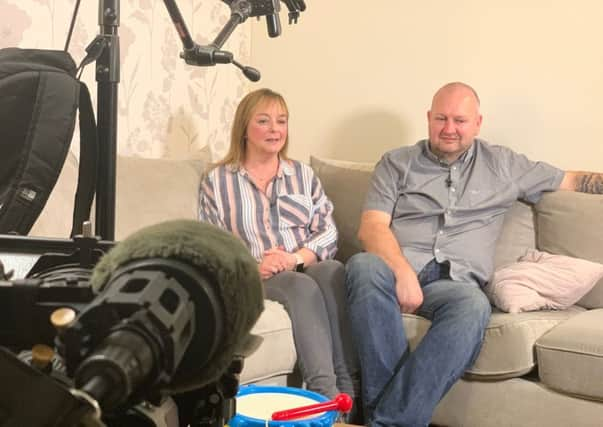Fees go up for Falkirk’s foster carers as council aims to keep children closer to home


And that’s only one of the ways in which the local authority aims to recruit new people to become foster carers – with a major social media campaign starting in three weeks.
Currently, many of Falkirk’s looked after children are sent to residential placements, often far away from their own homes.
Advertisement
Hide AdAdvertisement
Hide AdBut that can make an already traumatic experience even more difficult for vulnerable children.
Falkirk Council would like to change this and bring them closer to home, members of the council’s education committee heard.
Service manager Vivien Thompson told councillors: “By having them cared for closer to home, they are maintaining social links and we achieve better outcomes for them.”
However, that’s not the only benefit to the council.
Having children and young people looked after in the district could save the authority a substantial amount of cash as sometimes it has to pay up to £5000 for a week’s accommodation, compared to around £400 for a Falkirk Council fostering placement.
Advertisement
Hide AdAdvertisement
Hide AdEffectively, that means any money spent in increasing fees will be offset over time by the savings made.
Falkirk has a good track record in recruiting people to look after its most vulnerable youngsters, but many foster carers are getting older, leaving a gap that needs filled.
Councillor Fiona Collie spoke in favour of raising the fees.
She said: “We have excellent foster carers but our carers are getting older – we all are – and we do need to recruit more.”
Advertisement
Hide AdAdvertisement
Hide Ad“Some children have significant challenges and to be able to support them in their own area is fantastic.”
“This is not about saving money – it is about keeping them closer to home, near other relatives, friends and peer groups – it’s excellent.”
Councillor Robert Bissett, leader of the Labour Group, questioned whether raising the fees would make a difference.
He said: “Is it the fees or is it because the application procedure is pretty horrendous?
Advertisement
Hide AdAdvertisement
Hide Ad“Could you give better support to people going through that?”
Sara Lacey, head of Social Work Children’s Services, replied: “We spent a lot of time analysing what had worked previously and one of our best recruiters is people recommending it to their friends.
“And they are saying that, yes, the fees do matter.
“They are not financially driven but they need to be financially secure order to undertake this task.
“Our carers can be very humble about what they do but the money does matter - it’s a big task and it’s a big ask!”
Advertisement
Hide AdAdvertisement
Hide AdThe committee heard that Falkirk Council are also losing out to charities which have a more dynamic marketing approach.
Carers will, however, receive less time off.
They currently receive 35 days a year – double that provided by most authorities.
Children say that their carers taking a break does not help them have a sense of belonging and they would like to see it changed.
Not all foster carers will receive the same fee; Falkirk has three fee levels, which are currently at the lower end of those paid by other councils and voluntary organisations.
Advertisement
Hide AdAdvertisement
Hide AdLevel one carer’s fee will rise from £60 per week to £150 per week.
Level two - more experienced - carer’s fee will rise from £100 to £150.
Level three carer’s fee will rise from £150 per week to £200 per week. (This is for carers who offer enhanced care to children with more complex needs).
At July 2017, within Falkirk 137 children were placed with foster carers.
The council aims to recruit 30 carers and replace those retiring, which will mean recruiting 55 over the next five years.